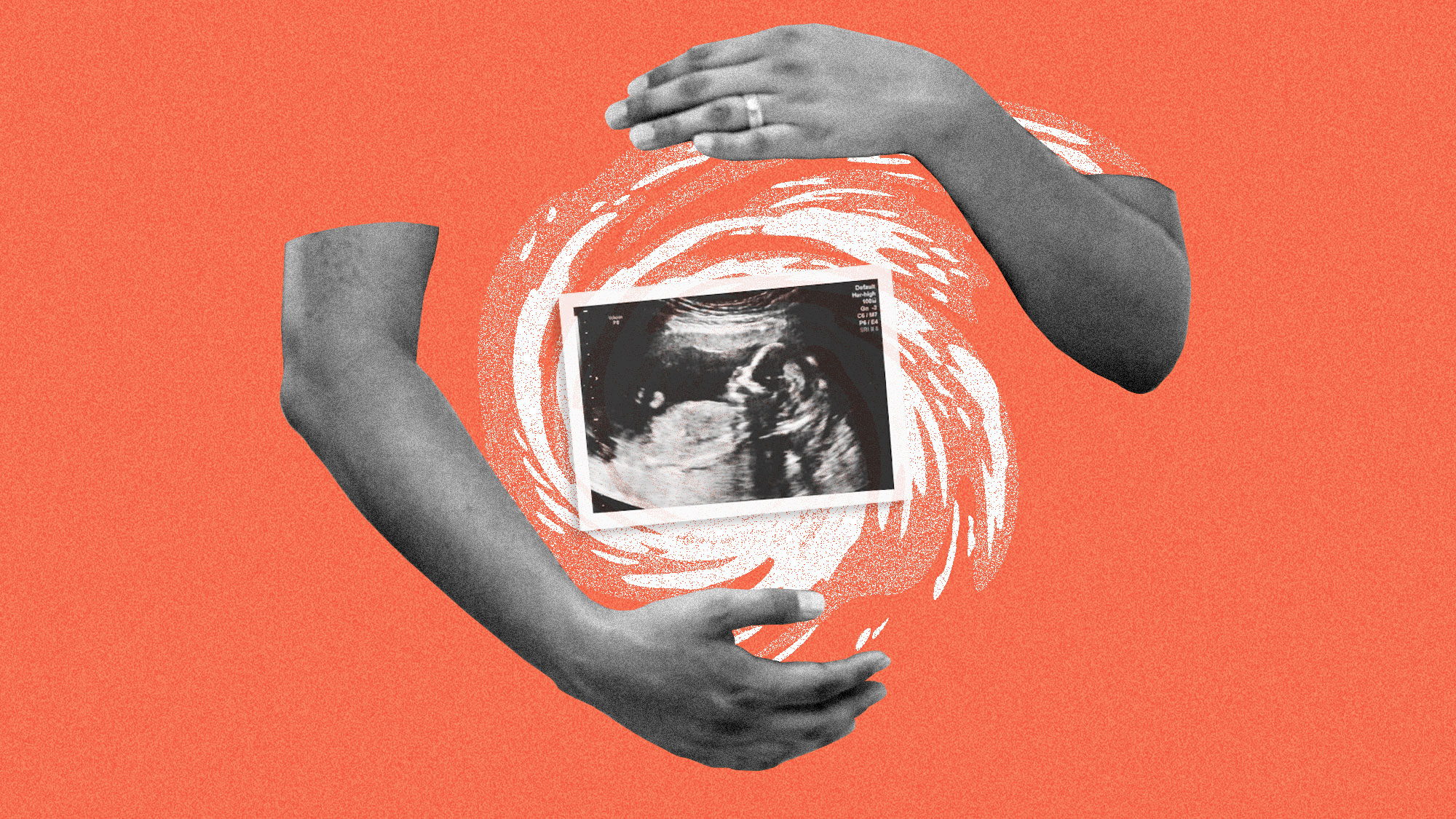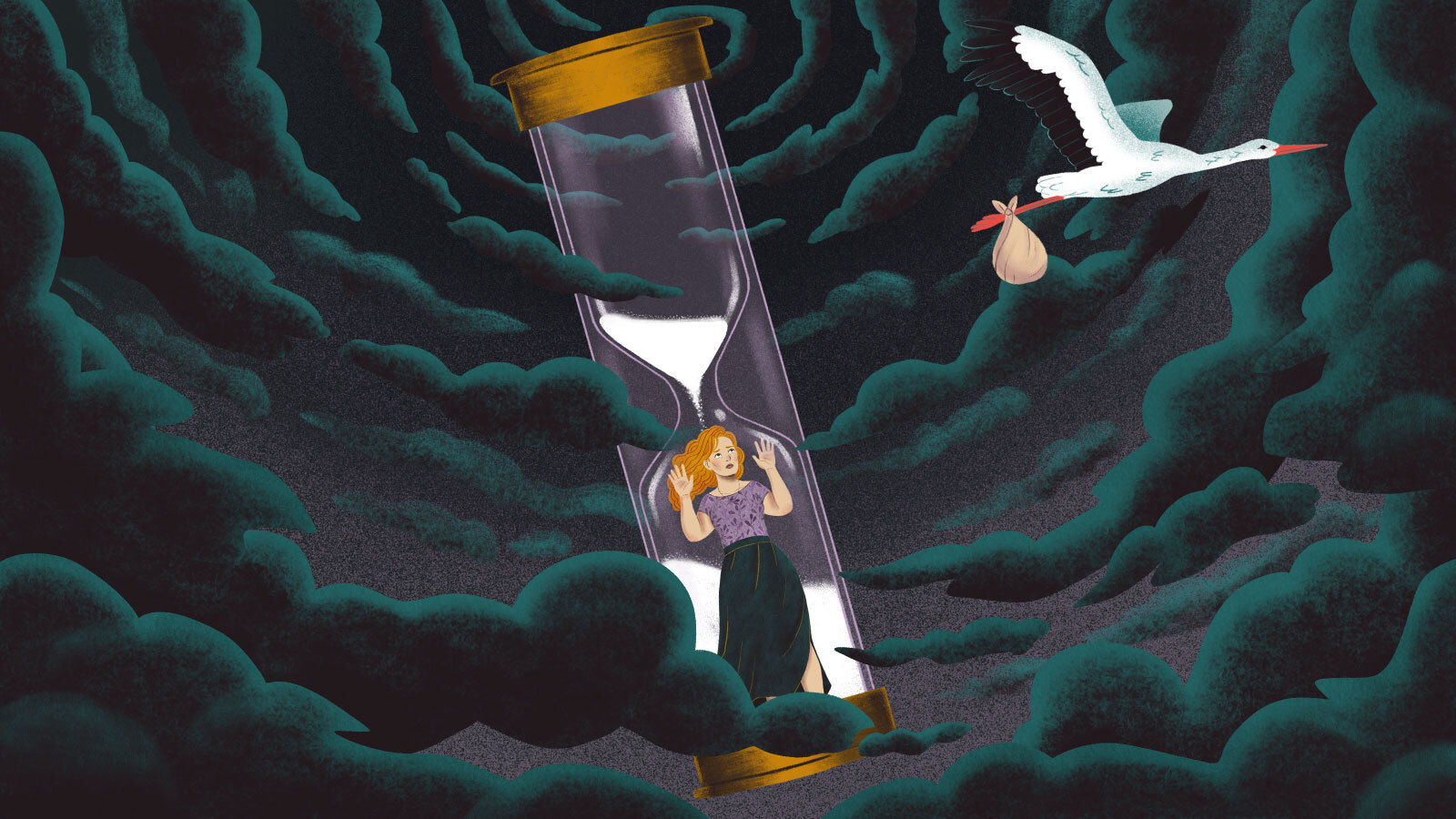In the days leading up to Hurricane Irma’s landfall in September 2017, Esther Louis made preparations to flee Florida with her husband and four children. The Category 4 Hurricane was expected to hit the Florida Keys and make it’s way up the state, posing a risk to millions of residents. One of those residents was a client of Louis’ who was nine months pregnant and living in a home that the Miami-based doula feared was in too poor of condition to withstand the storm.
As a doula, Louis was trained to provide holistic care to her client, anticipating all the factors that may affect her health. She worried about how the stress of an impending hurricane and evacuation could impact her client’s pregnancy. So she offered to escort her client and her family toward Georgia, where Louis was headed and where her client had relatives.
The caravan of two families departed together, inching their way in evacuation traffic to the Georgia border. What would have been an eight hour drive took 24 hours. “It was stressful,” Louis said. Her client started to experience Braxton Hicks contractions which can be caused by stress. At times they would switch drivers so she could provide emotional support to her client, who was worried about all that could go wrong on the drive. “Sometimes people go to the worst possible outcome but I’m like, ‘We’re going to get there, OK? We’re going to work it out.’”
The experience was one of many instances in Louis’ career where the worsening climate crisis had complicated a client’s birthing journey. She realized that if doulas like herself had proper training on how to communicate the risks of hurricane season, flooding and even extreme heat to their clients, they would be better prepared in the event of a disaster like Irma.
They would also be filling an important information gap that could protect pregnancies, particularly for Black people, who have a higher climate risk and higher maternal mortality rates.
Over the past decade, a growing body of research has linked environmental threats like extreme heat and wildfire smoke to an uptick in stillbirths, premature births and low-birth weights. These factors also cause health problems for pregnant people, including an association with developing preeclampsia, a high blood pressure condition that can be deadly. More recently, studies have linked climate-related disasters with higher rates of maternal mental health issues like postpartum depression.
So in 2024, after years of providing some of this training herself to doulas in the Miami-Dade area, Louis partnered with Dr. Cheryl Holder, cofounder of Florida Clinicians for Climate Action, a nonprofit that seeks to teach health professionals how to incorporate climate change into their work. They won a grant that would help them develop a curriculum and training known as the Doula C-Hot program, to teach doulas how to assess the climate risk of their clients and help them better prepare for future climate threats. If the pilot is successful it could serve as a blueprint for how to train doulas across the country as climate educators.
A survey conducted by Louis and other advocacy groups focused on maternal health found that doulas, who provide emotional and physical support to pregnant people, were already seeing the everyday risks the changing climate posed to their clients’ pregnancies and doing their best to help them cope.
In New Orleans, doulas have shown up at emergency shelters to figure out what people need to safely feed their infants when access to sterile water needed for infant formula isn’t always available or places to privately breastfeed can be hard to find. And in Philadelphia, doulas are playing an important role in educating patients on environmental exposures to contaminants like lead or air pollution.
Some doulas, like Houston-based Sierra Sankofa, have even developed disaster planning workshops aimed at pregnant people and families with young children that can help them better prepare for staying warm in the winter and cool in the summer. She’s covered topics like how to know if breast milk is still safe if the power has gone out and how to sanitize bottles with no electricity.
But while many doulas are already helping their patients through climate-related disasters, the survey identified another trend: 95 percent of them wanted more training and resources to help pregnant people deal with environmental threats and hazards.
So far the pilot program in Florida, which has been running for almost a year, has trained 12 doulas on the impacts of climate change on pregnancy and maternal health. It follows a model developed by Holder, a collaborator on the project, who similarly trained clinicians to understand climate health risks. She wanted to focus her efforts on reaching pregnant people, particularly from the marginalized populations she already works with as a doctor.
“Where else should we start, other than with pregnant folks? That’s two lives, the next generation,” she said. “And if we can’t learn lessons to save the newborn, the unborn and the mom, how are we in society going to do anything?”
She knew doulas could be more effective in that work, due to the close relationships they develop with their patients and the time they spend with them. They also conduct home visits and are able to understand more holistically what may be impacting a pregnant person’s health.
Nationally, doulas are being recognized for their additive care, with many states passing legislation in recent years to cover their services under Medicaid in order to improve birth outcomes, particularly for women of color.
As part of their training with the project, the doulas work with their clients to gauge their preparedness, said Louis, who helped develop the assessment tool. They ask them questions like do they have an air conditioning unit? Or someone they can borrow $50 from in case of an emergency? Do they have a place to go if a disaster hits?
Depending on their answers, the doulas are then able to offer advice, like where to find a cooling center, or resources including portable air conditioners for those without AC. They also help their clients do things like look up whether they live in a flood zone, and assist them in developing plans to prepare for a hurricane or other natural disaster. They then reassess their patients after these climate-focused meetings to understand if they are now better prepared to deal with heat or hurricanes during their pregnancies. So far they’ve worked with over 40 clients. If the pilot program is successful, they hope to build out the tools and training to make it accessible beyond Florida.
Already they are thinking of ways to reach more pregnant people, said Zainab Jah, a researcher evaluating the program. For one, they would like to expand the languages of their materials, which are in English. In the parts of Miami-Dade and Broward County where they work, there are communities who speak Haitian Creole and Spanish. Some of their doulas are able to translate, but they’d like to focus on language equity as they grow the program.
Meanwhile, other models are being developed. In Oregon, Nurturely, an advocacy group that focuses on perinatal equity, or improving pregnancy outcomes, is working on a similar train-the-trainer model set to launch in 2026, which aims to expand the knowledge of birthworkers around wildfire season and wildfire smoke. “The perinatal period is a very delicate period. So there are niche needs and preparation for people in that category,” said Aver Yakubu, a program director with the organization.
Many of the doulas Yakubu has spoken to in the state are aware of the dangers of wildfires, but “they don’t know where to start or what to say to their patients,” she said. This training would aim to fill that information void and connect clients to resources. In Oregon, for example, pregnant Medicaid patients can use their coverage to pay for things like air conditioners and air purifiers, which can buffer them from the effects of heat and smoke.
Still, there are limitations to using doulas to reach those most socioeconomically vulnerable to the climate crisis. Doula care is expensive, and while Florida can reimburse doulas under the state’s Medicaid program, it’s been difficult in practice for doulas to qualify and receive payment. In Texas, where Sankofa works, she said the current Medicaid reimbursements leave out community-based doulas who specifically help marginalized groups by only recognizing certain certifications. Many community-based doulas have received training outside of those certifying bodies and are holistically meeting the needs of their clients, she argues. She’s advocating to change the law to allow for a broader definition of who could meet those guidelines.
But even if there is progress on improving doula coverage, the future of Medicaid itself is up in the air. A majority of the clients being reached by the Florida pilot program are on Medicaid, and nationally, the program covers 41 percent of all births. But with the impending cuts to the program pushed through under the Trump administration, coverage could dwindle.
“I think that’s the biggest issue right now,” Jah said. “I think we’re just all actively in the space of trying to learn from one another and brainstorm to figure out what can be done. But I think that’s going to be a huge barrier.”
While figuring out some of the logistical and financial obstacles will be difficult, Holder believes the training they are providing doulas is crucial to the health of pregnant people in a state where climate change is wreaking havoc.
“I would really love to see this program fully tested and expanded and incorporated in general medical care,” she said. “This is the new environment we live in.”





